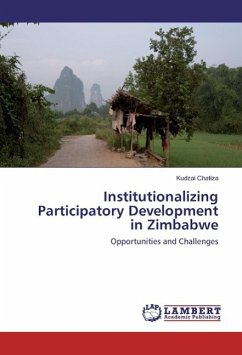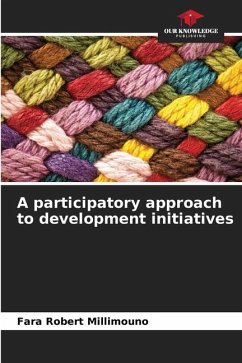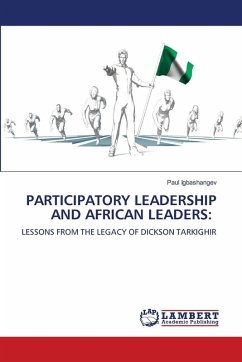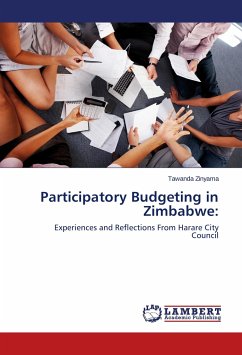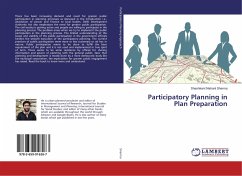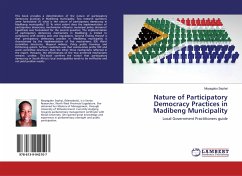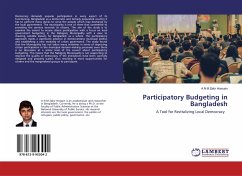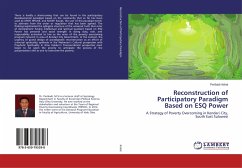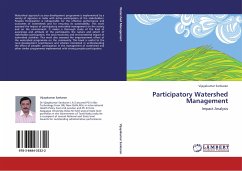
Institutionalizing Participatory Development in Local Government
Lesson from Bangladesh
Versandkostenfrei!
Versandfertig in 6-10 Tagen
32,99 €
inkl. MwSt.

PAYBACK Punkte
16 °P sammeln!
The ongoing development practices in the developing countries tend to ignore the indigenous knowledge and experience that gathered through generations. Subsequently, it undervalues the importance of citizen participation in the process of local level development which, in turn, is believed to be diluting the outcomes of any initiative significantly. This book looks at the participatory development with an eye to institutionalizing it as an alternative approach. It suggests participation as to be intrinsic feature of any development initiatives. The investigation under this study suggests a sys...
The ongoing development practices in the developing countries tend to ignore the indigenous knowledge and experience that gathered through generations. Subsequently, it undervalues the importance of citizen participation in the process of local level development which, in turn, is believed to be diluting the outcomes of any initiative significantly. This book looks at the participatory development with an eye to institutionalizing it as an alternative approach. It suggests participation as to be intrinsic feature of any development initiatives. The investigation under this study suggests a system where both political and administrative institutions will offer and ensure a fitting ambience of the citizen inclusion; where development actors will come out of the previous roles and behavior; and the local citizens will strive for discarding their dependent mentality. The analysis and suggestions of this book could be instrumental in developing an alternate thinking to the mainstream development practices. This book should be helpful to the policy planners and think tanks of the developing countries and would equally be of use for the development partners and their representatives.



